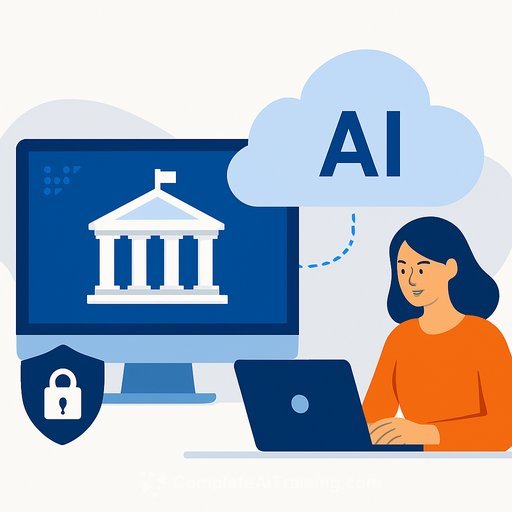Hong Kong's AI Efficacy Enhancement Team: A practical playbook for better public services
Hong Kong has set up the AI Efficacy Enhancement Team and held its first meeting, chaired by Deputy Chief Secretary Cheuk Wing-hing. The team will coordinate policy bureaus and departments to put AI to work where it improves efficiency, streamlines operations, and encourages innovation in public services.
This move fits with the government's digital transformation goals in the latest Policy Address, which positions technology as a driver for stronger governance and service delivery. For context, see the Policy Address overview on the official site: policyaddress.gov.hk.
Mandate and mission
The team is the central hub for spotting high-impact AI use cases across government processes and service areas. The mission is clear: help departments apply AI to improve accuracy, responsiveness, and transparency.
Where the first wins are likely
The initial strategy guides departments on using AI for both internal operations and citizen-facing services. Priority goes to areas with heavy public interaction, services that are highly visible, and workflows where automation and data analytics can lift performance.
- High-volume counters and hotlines
- Licensing, permits, and case handling
- Document-heavy tasks and approvals
- Data-intensive monitoring and reporting
Target outcomes that matter
The government wants measurable gains: faster workflows, better service quality, and a smoother user experience. The team will identify services that affect daily life so residents see practical benefits-shorter waits, fewer errors, and clearer status updates.
Process re-engineering with AI
Departments will assess current frameworks and spot steps that stall delivery. Focus areas include data management, customer service, case processing, and document handling.
The goal is to replace repetitive, manual work with intelligent systems that handle large datasets, automate routine tasks, and surface insights to guide policy and operations. Think queue reduction, automated triage, and searchable records that cut rework.
Shared AI toolboxes and standards
At the meeting, the Digital Policy Office presented AI toolboxes for common government functions. These include data analytics, natural language processing, and automated document processing that departments can plug into daily work.
Standardised tools and frameworks will speed adoption and keep data security, consistency, and accountability front and center. This reduces duplicated effort and lowers the risk of fragmented solutions.
Governance, delivery, and support
The AI Efficacy Enhancement Team will track departmental projects, provide implementation guidance, share best practices, and build capacity. Departments are encouraged to run pilots that solve specific problems and use the results to shape broader rollouts.
A phased plan is in motion, with implementation details to be finalised within six months. Gradual rollout allows testing, feedback, and improvements before scaling successful models across multiple departments.
What departments can do now
- Map processes end-to-end; flag bottlenecks, rework, and handoffs.
- Prioritise high-volume and high-variability transactions where AI can cut cycle time.
- Define clear KPIs: turnaround time, error rates, first-contact resolution, satisfaction scores.
- Set data governance: quality standards, access controls, audit trails, retention rules.
- Plan workforce training and change management early to reduce adoption friction.
Building capability and public trust
Institutionalising AI means developing internal skills, improving data-informed decisions, and communicating clearly with the public about how systems work. Transparency and measurable outcomes will help build confidence in AI-enabled services.
With coordination, standards, and a focus on results, Hong Kong is laying the groundwork for an agile, responsive administrative system that keeps pace with a changing digital society.
Skills and capacity building
If your team needs structured learning paths to support pilots and scale-up, explore role-based AI courses for public sector functions here: Complete AI Training - Courses by Job. For a quick scan of current options, see the latest programs: Latest AI Courses.
Your membership also unlocks:






